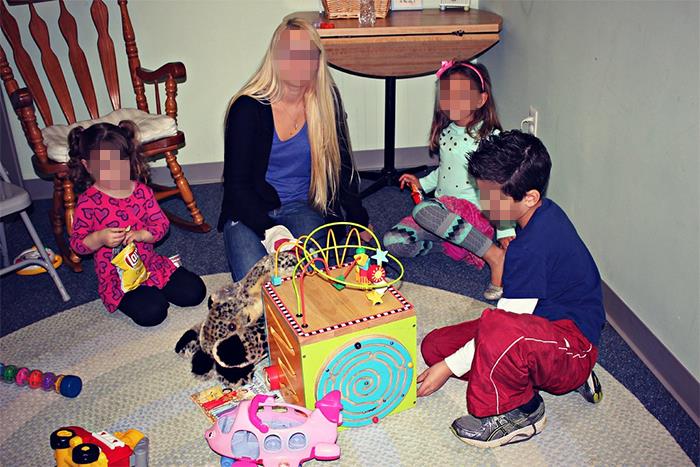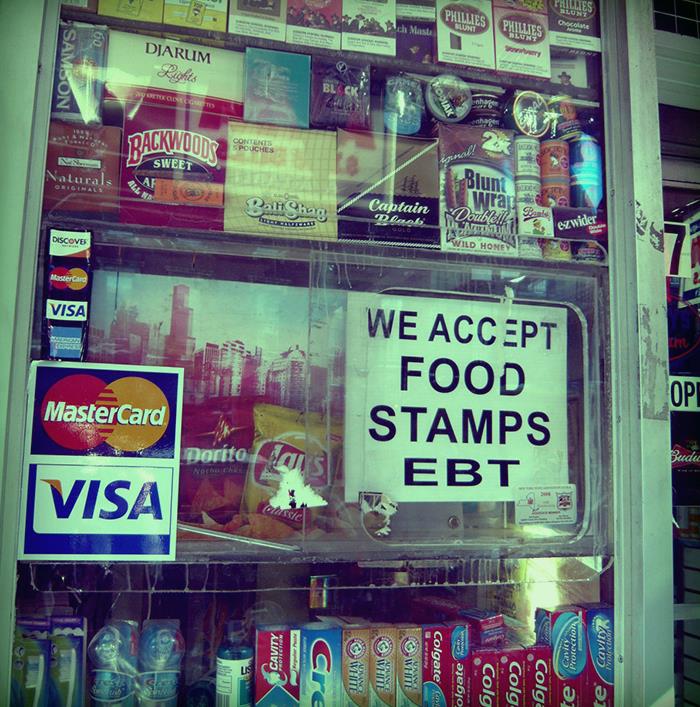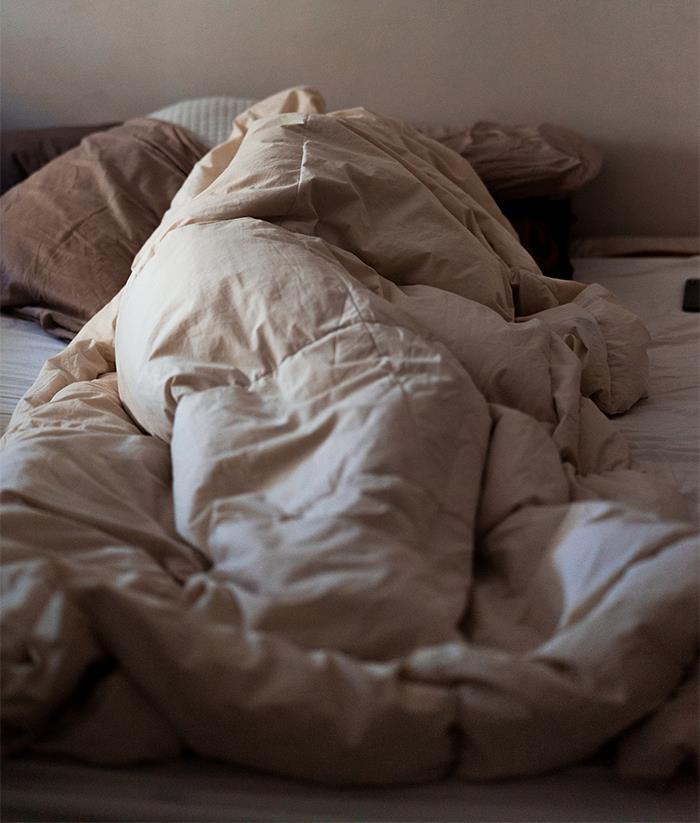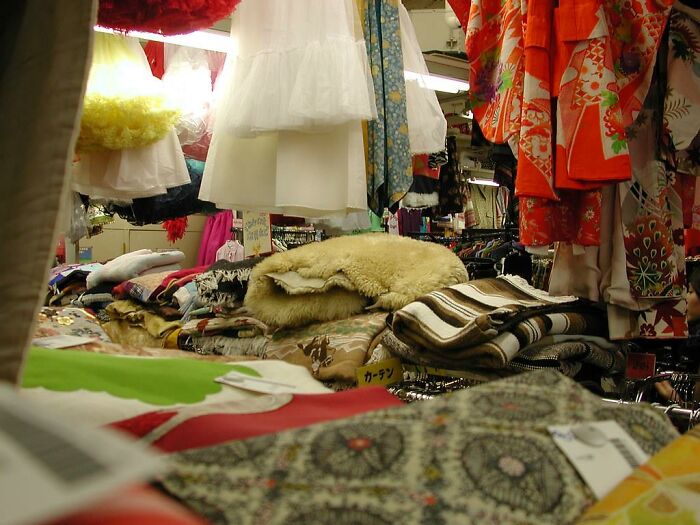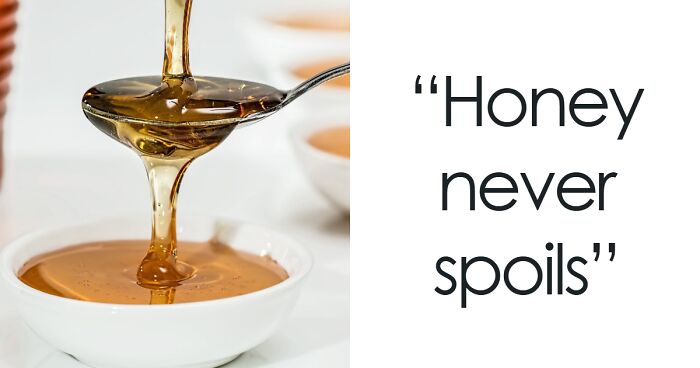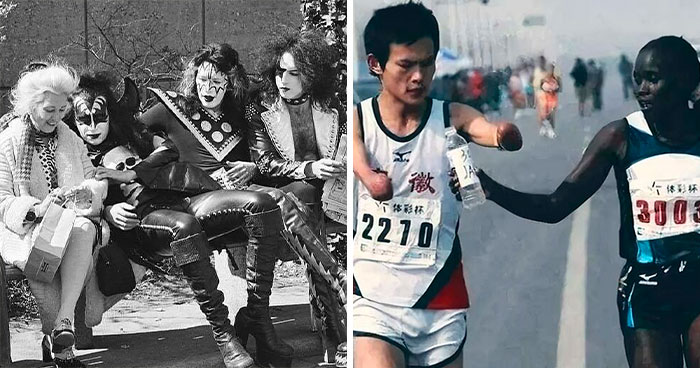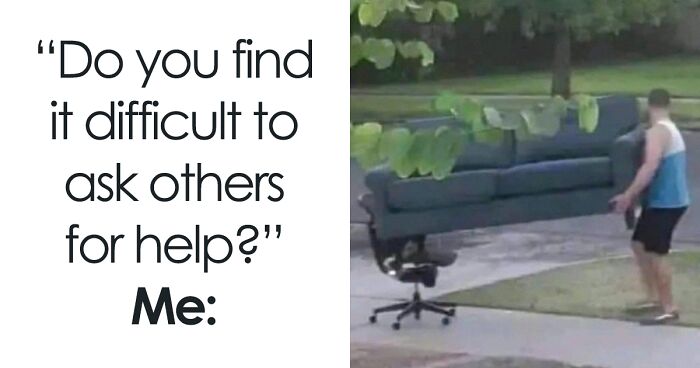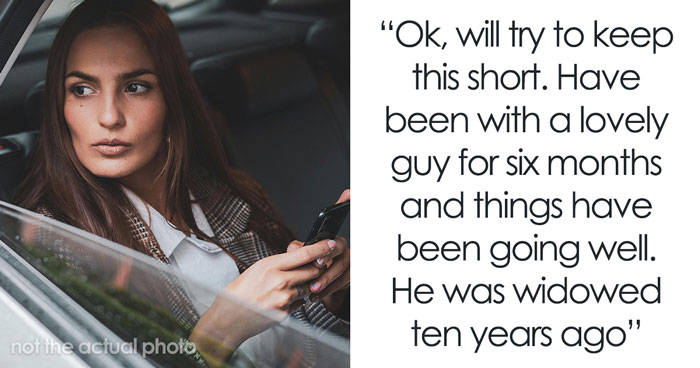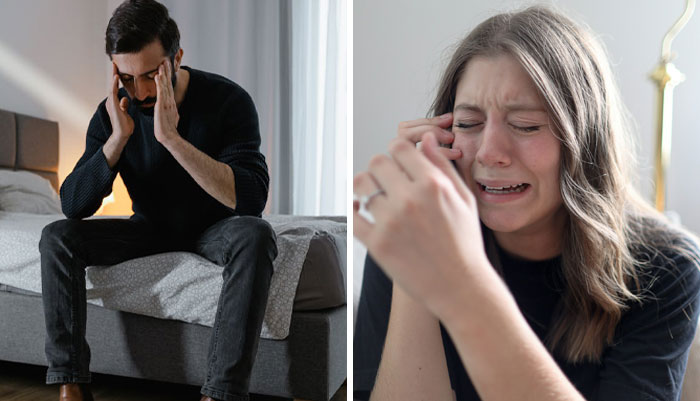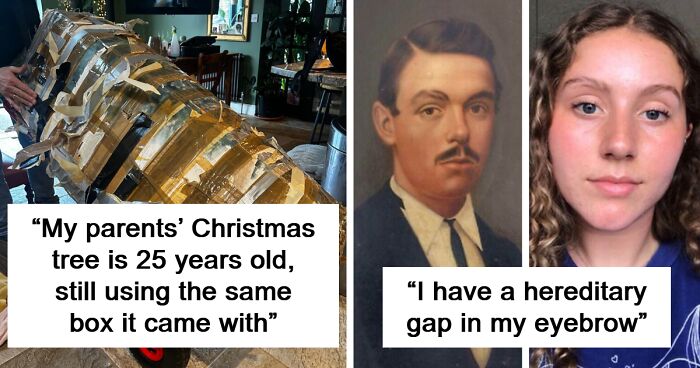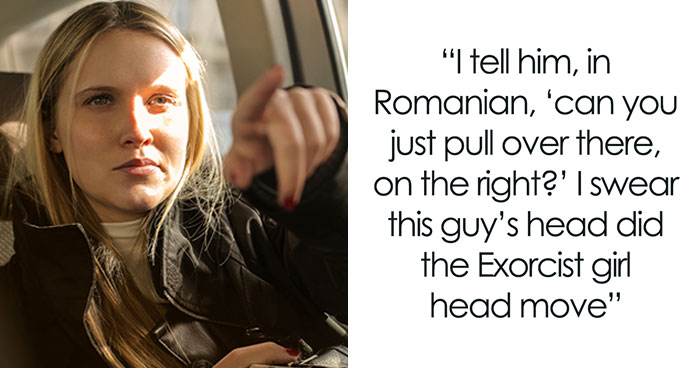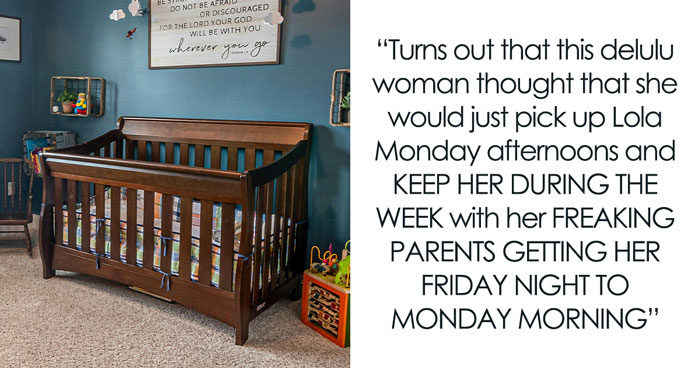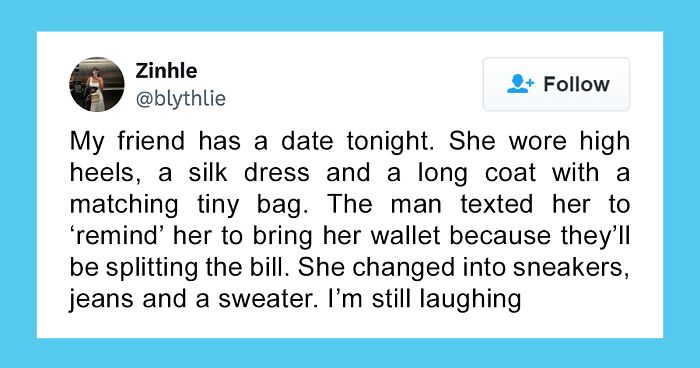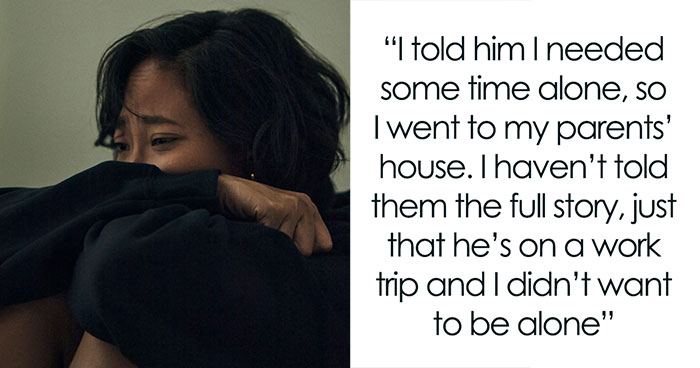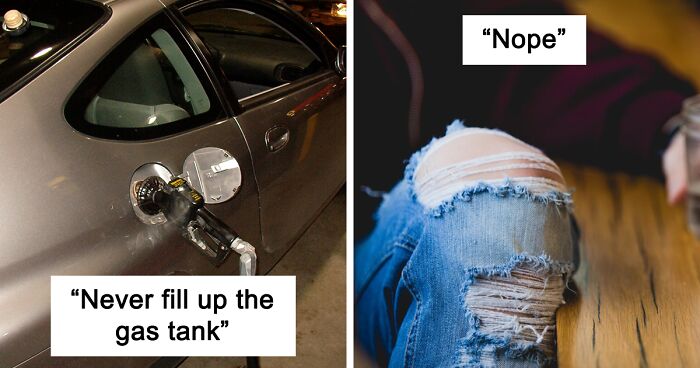
35 People Who Grew Up Poor Share What Unwritten Rules They Abided By To Get By
InterviewLife when you’re well-off and when you’re incredibly poor is like night and day. The difference in your family’s income doesn’t just affect the quality of your food and how you spend your free time—not having enough money impacts nearly every aspect of your life. In ways that you couldn’t imagine.
One redditor, user Jicta, asked their fellow site users who grew up poor to share the “unwritten social expectations of your world growing up,” besides practical and widely-known money-saving measures. The responses have been heartrending. Have a read through them below, dear Pandas, and let us know what you think. Have you ever had to do anything like this while growing up? Share your thoughts and experiences in the comment section, dear Pandas.
The creator of the Financial Samurai blog, financial expert Sam Dogen, went into detail with Bored Panda about climbing out of poverty. "One of my main reasons for writing 3X a week on Financial Samurai since 2009 is so that I can help people for free reach financial independence sooner, rather than later. Not only is my blog free, but so is my newsletter," he said. We also reached out to the original poster of the question, Redditor Jicta. Read on for both of their insights.
This post may include affiliate links.
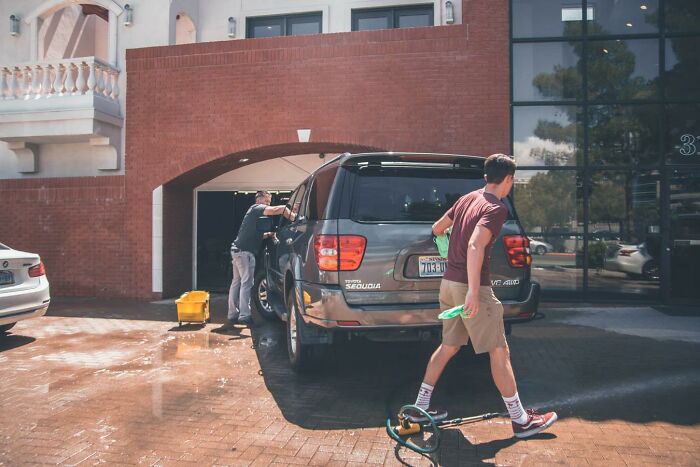 Not really a societal expectation, but more of a familial one. I never once knew how closely my family toed the poverty line, thanks to how my parents ran things. My dad, though, he would volunteer me all the time to help friends, family, coworkers in need, if I was able to at all. Never let me ask for a single dollar from them, unless it was explicitly "a job" and for, say, a friend of a friend. I helped his coworker move a handful of times. I cut my elderly neighbor's grass. I helped so-and-so connect their internet, or a friend of his to replace their carpet.
Not really a societal expectation, but more of a familial one. I never once knew how closely my family toed the poverty line, thanks to how my parents ran things. My dad, though, he would volunteer me all the time to help friends, family, coworkers in need, if I was able to at all. Never let me ask for a single dollar from them, unless it was explicitly "a job" and for, say, a friend of a friend. I helped his coworker move a handful of times. I cut my elderly neighbor's grass. I helped so-and-so connect their internet, or a friend of his to replace their carpet.
I had no idea what my old man was fostering in both me and them. When I moved out on my own, his coworker called, offered to help. Showed up with antiques from his late mother as a housewarming gift for my wife and I. The man who's grass I cut? He passed away, and left me his piano, since he knew I liked to play. The friend with the carpet? Hooked me up with a decent paying job right out of college. The internet-illiterate ones? Solid mechanics, and know my vehicle inside and out.
He was teaching me something so much more than just an exchange of goods and services. These weren't I.O.U.s coming due. The man knew the value of community and friendship, and just how far people would go for someone else if they just cared, even an ounce.
It bleeds over in my day to day, now, too. I may see someone at the grocery store struggling to find a product, so I take the time to help them out. It costs me only a few minutes, and I may never see them again. Or, I find out the person I helped is the very same one standing behind the counter at the DMV, and makes my time just a little bit shorter as a thanks.
TL;DR, my pops taught me the value of kindness.
Your dad taught you a lesson that I have a feeling you will pass down to any children you may have or will have. What a wonderful legacy to receive and continue in your family!
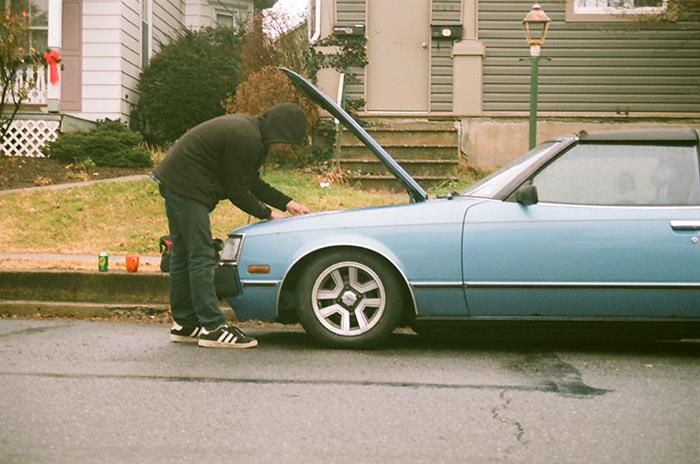 If your neighbors were in need—you helped them. Like, Mary’s car broke down again, so my brother would go work on her car for free on his day off, and I’d get up extra early all week to drop Mary off at work and get her kids to school. Swing by in my lunch break to grab the kids after school, too. Basically, when folks are in need—you help them, and the same is done in return.
If your neighbors were in need—you helped them. Like, Mary’s car broke down again, so my brother would go work on her car for free on his day off, and I’d get up extra early all week to drop Mary off at work and get her kids to school. Swing by in my lunch break to grab the kids after school, too. Basically, when folks are in need—you help them, and the same is done in return.
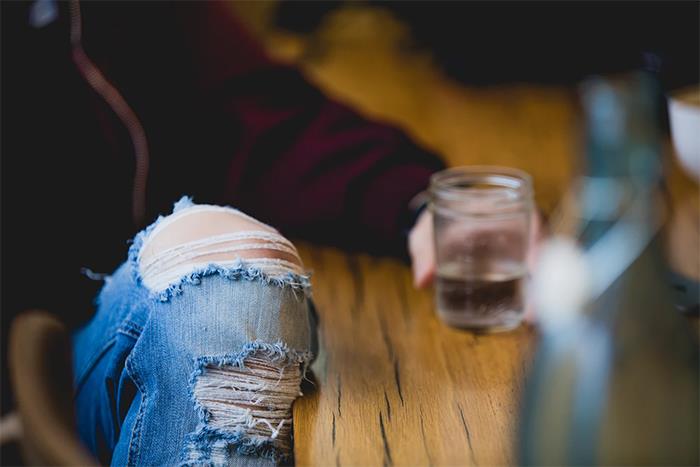 Keep your hair brushed, your clothes clean, and be articulate and polite in all circumstances. We were not going to be 'trash' just because we were poor. Also, no wearing ripped jeans, even if it's the style. We're not spending money on new pants that look like old worn-out pants.
Keep your hair brushed, your clothes clean, and be articulate and polite in all circumstances. We were not going to be 'trash' just because we were poor. Also, no wearing ripped jeans, even if it's the style. We're not spending money on new pants that look like old worn-out pants.
Totally agree with not spending money on new clothes that are made to look like old torn clothes. What is that all about anyway? Are they actually recycled clothes?
Sam, the founder of Financial Samurai, agreed with us that climbing out of poverty is incredibly difficult. However, there are ways to go about this and, in his opinion, anyone stuck in a difficult financial situation should focus on one thing: financial education.
"The most important thing one can do is gain as much financial education as possible to get out of poverty. If there is no internet access at home or mobile data plan, perhaps there is free internet access at the local library, pandemic-willing. We can now learn anything and everything for free on the internet," he explained, sharing that there are always ways to go around obstacles like lacking internet access.
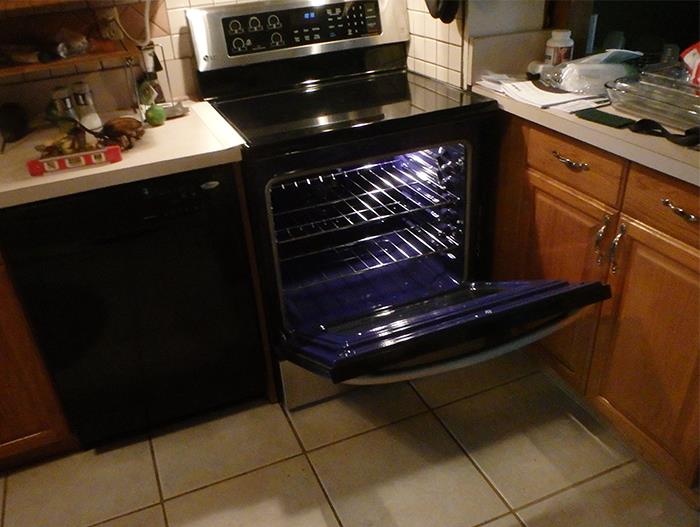 If you use the oven during winter, when you’re done, leave it cracked so that the heat warms up the rest of the house more.
If you use the oven during winter, when you’re done, leave it cracked so that the heat warms up the rest of the house more.
 Always return anything you borrow in better condition. People will be eager to loan you things.
Always return anything you borrow in better condition. People will be eager to loan you things.
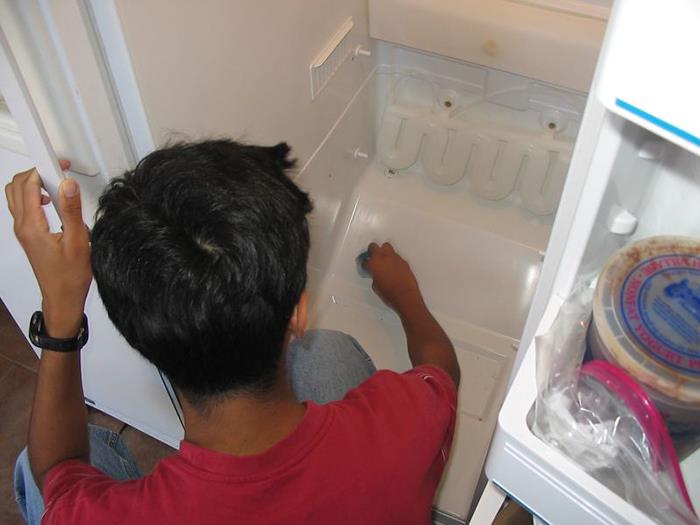 Overall, independence at a young age. But also responsibility. You cook, clean, and pitch in before you are asked. If you’re waiting for an adult to make dinner, you’re going hungry. Also, poor doesn’t mean dirty. You keep what you have nice, clean, and well cared for.
Overall, independence at a young age. But also responsibility. You cook, clean, and pitch in before you are asked. If you’re waiting for an adult to make dinner, you’re going hungry. Also, poor doesn’t mean dirty. You keep what you have nice, clean, and well cared for.
Seriously, I wouldn’t trade my upbringing for anything in the world.
Bored Panda also wanted to get Sam's take on what people who are exhausted and live in poverty should prioritize when they're forced between buying food, paying for rent, getting gas, and other important decisions.
"Paying for food is obviously the #1 necessity to spend money on. Fortunately for renters, there is an eviction moratorium in many parts of the world during the pandemic. Many renters don't have to pay their mortgage if they've faced COVID-19 hardship. However, the moratorium will eventually end given landlords have bills to pay as well. Therefore, the second focus is on shelter. Try to either work out an agreement with the landlord or make contingency plans with friends and relatives once the moratorium is over," he advised.
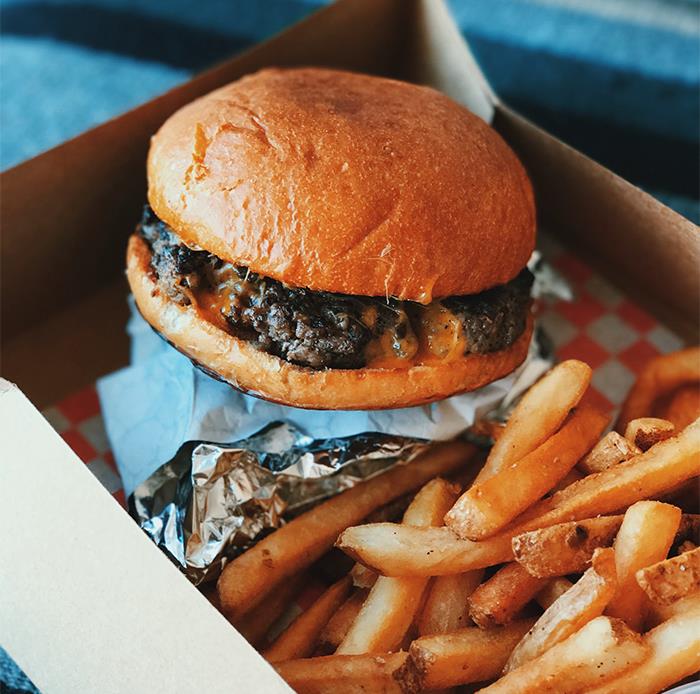 People actually order take-out food like every night. I still think that's mad.
People actually order take-out food like every night. I still think that's mad.
Literally once or twice a year for us growing up.
 My parents where great at hiding that we where poor. They made sure we always had christmas presents and a birthday present. And we would order pizza at christmas. All our clothing came from other relatives or charity shops. But when i started working full time and went to live on my own? Just then i realized truth that we poor. But still looking back i have never had the feeling of being left out when it came too other childeren. And i still thank them for it.
My parents where great at hiding that we where poor. They made sure we always had christmas presents and a birthday present. And we would order pizza at christmas. All our clothing came from other relatives or charity shops. But when i started working full time and went to live on my own? Just then i realized truth that we poor. But still looking back i have never had the feeling of being left out when it came too other childeren. And i still thank them for it.
And now all the kids have moved out? There the most generous and loving grandparents you could wish for a kid.
But the biggest lessen i have learned is help others out. So every time i have something that i don't use or want? I give it away for free. Every time my daughter go's up a size in clothes? I give the old clothes to a charity that helps people with childeren who can't afford it. And it gives me a great feeling ever single time i do it.
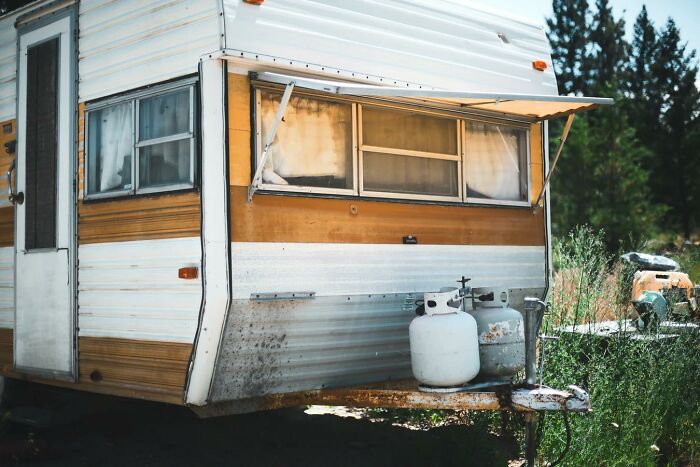 I grew up in a trailer. In fourth grade, a girl was having a birthday party and needed addresses for invitations. The next day she told me her parents uninvited me because I lived in the trailer. That was a new thing I learned I was supposed to be embarrassed about.
I grew up in a trailer. In fourth grade, a girl was having a birthday party and needed addresses for invitations. The next day she told me her parents uninvited me because I lived in the trailer. That was a new thing I learned I was supposed to be embarrassed about.
I guess just expecting to have to deal with other people's sh**ty parents sometimes.
Not having any friends over because where you live is too 'poor' and no one elses parents will let their kids stay over. Totally get it.
Redditor Jicta, the author of the thread who is based in the United States, told Bored Panda that they grew up in a middle-class family but have known people who were both wealthier and poorer than they were. "I was reflecting recently on some of the social expectations of my own background and realized probably everyone experiences variants of that. So I just thought I'd ask," they told us what inspired them to create the thread in the first place.
The responses to the question they posed affected them emotionally more than they thought they would. "The embarrassment people felt as children when they couldn't afford what their classmates or other peers did was really sad to me. It made me think about how many people I interact with every day are probably facing things that they'd be so embarrassed for anyone else to know. That's not limited to financial pressures, but that's definitely one big area," redditor Jicta explained.
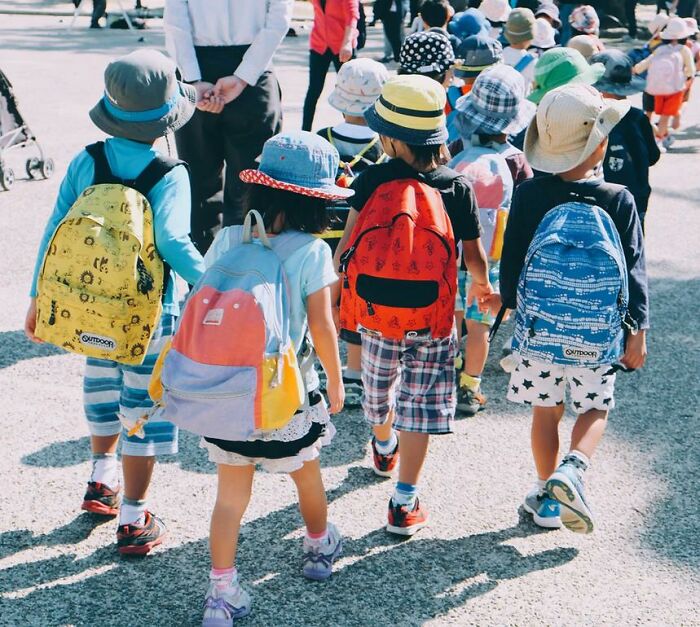 You never brought the field trip permission slips home because you knew better than to make your mom feel guilty she couldn’t pay the $5-20 fee to let you go.
You never brought the field trip permission slips home because you knew better than to make your mom feel guilty she couldn’t pay the $5-20 fee to let you go.
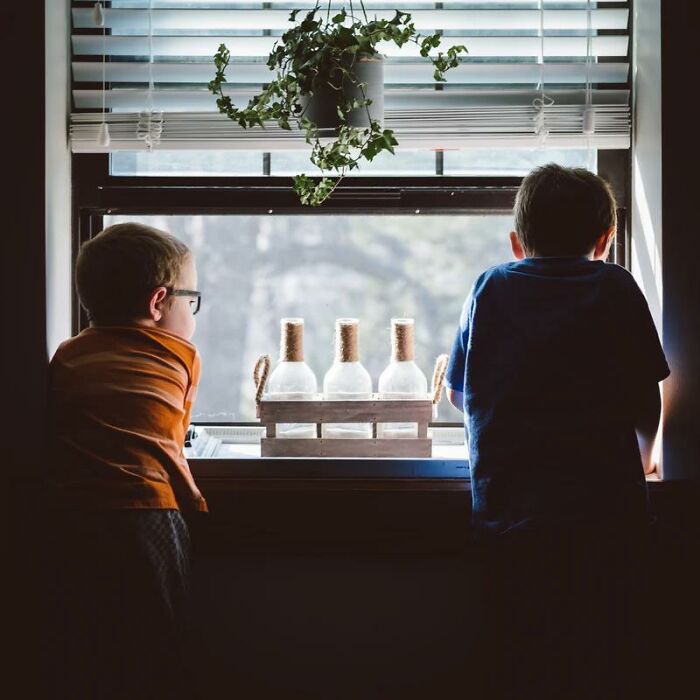 Being raised by a single mother, she instilled the belief that school went elementary, middle, high, then college. There wasn’t a question as to whether or not college was optional. She did everything in her power to raise two boys to live more successful lives.
Being raised by a single mother, she instilled the belief that school went elementary, middle, high, then college. There wasn’t a question as to whether or not college was optional. She did everything in her power to raise two boys to live more successful lives.
My brother and I both graduated college and graduate studies (MA) and our starting jobs were both with salaries that were over double what my mom made. Growing up I wish things where different but as an adult, I cherish the values and experiences instilled by my mom.
Same in my country - unless your parents are hopelessly poor, they would constamntly remind you how important it is to get a university degree, if you want to amount to something in life. Forget about leisure time - you have to study hard and get the best scholarship you can. And when you do go to college, the family would make every possible sacrifice to make sure you can graduate.
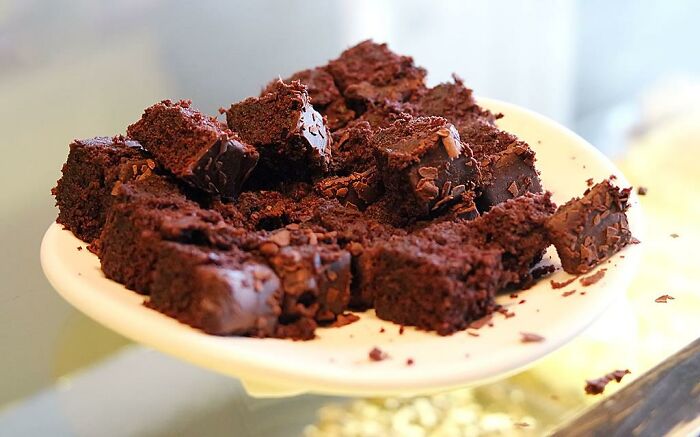 Eating stale or close to sell by date, food. No brand-name anything. Adding water to shampoo to get it to last longer. Reuse everything. Make-do or do without. Free samples count as a meal. To name a few.
Eating stale or close to sell by date, food. No brand-name anything. Adding water to shampoo to get it to last longer. Reuse everything. Make-do or do without. Free samples count as a meal. To name a few.
In Jicta's opinion, we can all fight child poverty on all fronts. From providing direct financial support to investing in how we educate teachers. "I really like the bailout's large child credit being proposed, and hope it stays this year and in the future. Also things like educating our teachers on how to ask questions in a way that doesn't highlight the differences between kids' experiences based on their parents' financial situations."
They continued: "And lastly if we can normalize getting sustainable financial help and learning basic financial literacy for adults, that would benefit kids. I noticed how many kids were in that predicament because their parents had such poor money management skills. But basically, we just have to be able to talk about money as a society, not pretend like it's not a thing."
It doesn't matter of you don't like the (food, clothes, shoes, toys etc) take it, say thank you and be appreciative
 Turn off all lights behind you. Take as quick showers as you can. Recycle pop cans. Drive slower because it conserves gas. Plan your trip so that you don't have to drive unnecessary routes and waste gas. Be OK with the heat always at 68 or below (use a blanket if you're cold).
Turn off all lights behind you. Take as quick showers as you can. Recycle pop cans. Drive slower because it conserves gas. Plan your trip so that you don't have to drive unnecessary routes and waste gas. Be OK with the heat always at 68 or below (use a blanket if you're cold).
Poor or not poor, you recycle pop cans. In my country at least...
If someone was nice enough to cook you a meal you better help(or at least offer to) clear the table and wash the dishes after.
The number of people living below the poverty line in the United States was a whopping 33.98 million in 2019, according to Statista. The number really is huge and speaks volumes about the daily suffering endured by Americans. However, the situation in the country has been getting much better recently, year by year.
Back in 2014, the number of Americans living in absolute poverty peaked at 46.66 million. So for nearly 13 million people, their living situation has improved at least a bit. Unfortunately, these are pre-Covid19 pandemic numbers. We’ll need to wait a year or more to get the full picture of how the lockdowns and massive changes to how society functions have affected the poor. Odds are, the situation might’ve gotten worse.
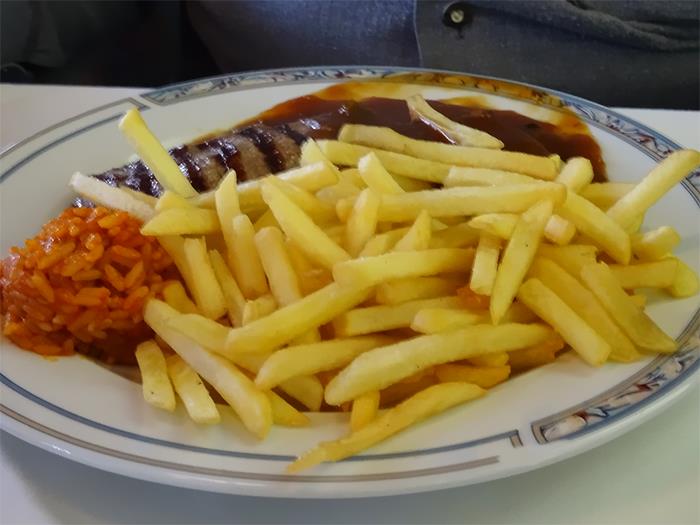 If someone buys you food at a restaurant order as cheaply as possible even if they tell you order whatever you want. Used to get death glares from parents if I ordered something 10 bucks or over at a place where average prices was 10 bucks. If you can get a burger and fries for 8 you better be eating a burger.
If someone buys you food at a restaurant order as cheaply as possible even if they tell you order whatever you want. Used to get death glares from parents if I ordered something 10 bucks or over at a place where average prices was 10 bucks. If you can get a burger and fries for 8 you better be eating a burger.
I'm so lucky to have friend who paid for food back in college, since my allowance was much smaller. I wouldn't survive without them.
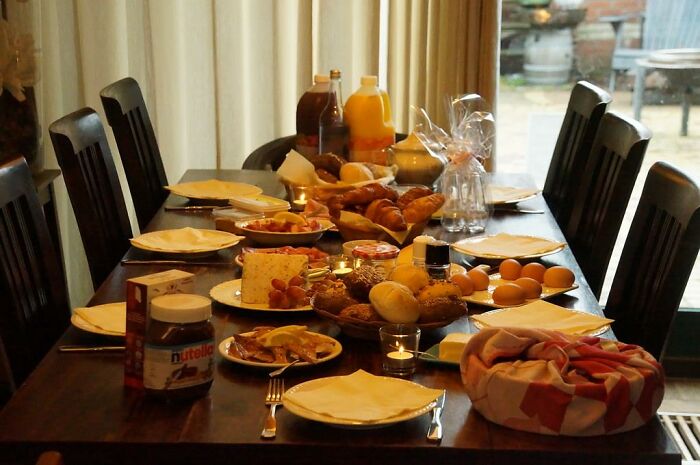 We were very poor growing up. You never ate the last of anything without asking first. Portions were small and limited. When I was 11 I was invited over to a then friend's house. I was floored by their house and furnishings. Very opulent compared to mine. Lunch time came. Her mom had set the table for sandwiches. Everything laid out, 3 different breads, all sorts of meats, condiments and fruit. At my house lunch was a sandwich with white day old bread with peanut butter and jelly. Sometimes we would have those land o frost thin sliced meats. We were only allowed 2 slices of the meat per sandwich. So, at this friends house, I make my sandwich with one slice of ham because it was way thicker then the stuff at home. The mom kinda freaks out..."what kind of sandwich is that? You need to put more on it, thats not enough." I explain that's what we do at home. They were horrified. Ended up sending me home with a "care package" of food. My parents never let me go to her house again because they were embarrassed I told them we were poor.
We were very poor growing up. You never ate the last of anything without asking first. Portions were small and limited. When I was 11 I was invited over to a then friend's house. I was floored by their house and furnishings. Very opulent compared to mine. Lunch time came. Her mom had set the table for sandwiches. Everything laid out, 3 different breads, all sorts of meats, condiments and fruit. At my house lunch was a sandwich with white day old bread with peanut butter and jelly. Sometimes we would have those land o frost thin sliced meats. We were only allowed 2 slices of the meat per sandwich. So, at this friends house, I make my sandwich with one slice of ham because it was way thicker then the stuff at home. The mom kinda freaks out..."what kind of sandwich is that? You need to put more on it, thats not enough." I explain that's what we do at home. They were horrified. Ended up sending me home with a "care package" of food. My parents never let me go to her house again because they were embarrassed I told them we were poor.
The fight against poverty is multifaceted and complex. Unfortunately, there isn’t a simple and clear-cut solution to the problem (if only printing more money didn’t result in greater inflation…). But it boils down to society providing support and opportunities for families that aren’t well off, as well as those same families doing everything in their power to get out of the so-called cycle of poverty.
Focusing on financial literacy, improving your education, aiming for a better job, finding a home closer to work and for less rent, reaching out to the community for help, getting rid of credit card debt bit by bit—all of these are small steps that can help move a family out of absolute poverty and into the working, middle, and even upper classes. This is, of course, far easier said than done. When you’re exhausted, hungry, and beaten down, it’s hard to find the energy and willpower to make even small changes—all you want is sleep, food, and a moment of peace.
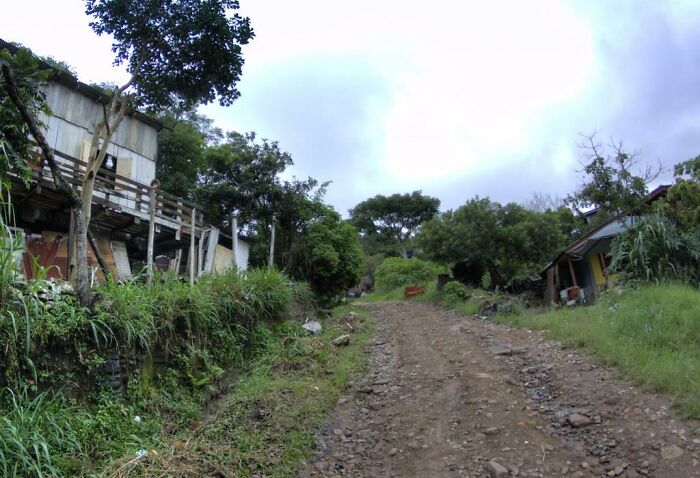 Keep your aspirations to yourself. Telling anyone in your household/social strata about your plans to get out and do better may be met with bitterness and downright ridicule. People will call you uppity for wanting to go to school or stupid for having a career goal that isn't modest and local and vaguely dead-end. People will tell you that you have no common sense simply because you refuse to see the world in terms of pure survival.
Keep your aspirations to yourself. Telling anyone in your household/social strata about your plans to get out and do better may be met with bitterness and downright ridicule. People will call you uppity for wanting to go to school or stupid for having a career goal that isn't modest and local and vaguely dead-end. People will tell you that you have no common sense simply because you refuse to see the world in terms of pure survival.
This is called the "Crab Bucket" mentality. Ever try to pull a single crab out of a crab pot?
You're not hurt unless you're bleeding.
If you are bleeding, don't bleed on the carpet.
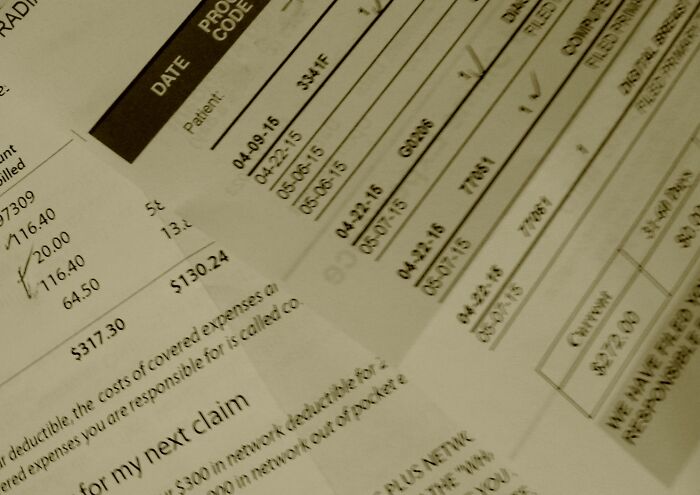 Going to the doctor isn't an option until your fever is sustained at 104, a bone is broken, or the tooth rotted and won't fall out on it's own.
Going to the doctor isn't an option until your fever is sustained at 104, a bone is broken, or the tooth rotted and won't fall out on it's own.
I am in my late 30's with full insurance and still have a hangup about going for medical care.
As a Canadian, this hurts to here. Our healthcare system isn't perfect, but s**t, you guys deserve better. We still pay for ambulances, dental and pharmaceutical care, but not going to the emergency ward of a hospital because you can't afford it is f***ing bonkers to us north of the border.
Poverty, real poverty, can have massive negative consequences on children as they’re growing up. Lacking access to proper food can lead to malnutrition. What’s more, poverty leads to inadequate health care and means that kids don’t have the same access to education (and later on, employment) as others.
Jicta’s thread got over 56.5k upvotes and over 17.2k comments which just goes to show that the topic is incredibly important to lots of redditors. And it’s a thread full of life lessons for all of us, no matter our background.
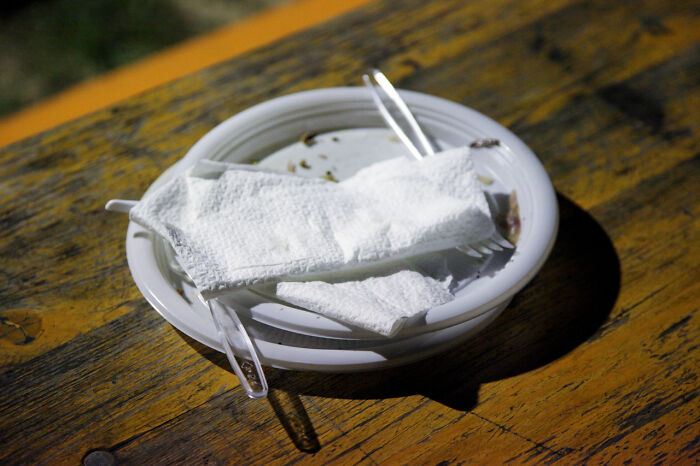 Not eating lunch because it you either "just ate breakfast" or "dinners only a few hours away you'll be fine"
Not eating lunch because it you either "just ate breakfast" or "dinners only a few hours away you'll be fine"
Happened a lot back in college, luckily most of my classes started at 1 A.M so i could wake up late.
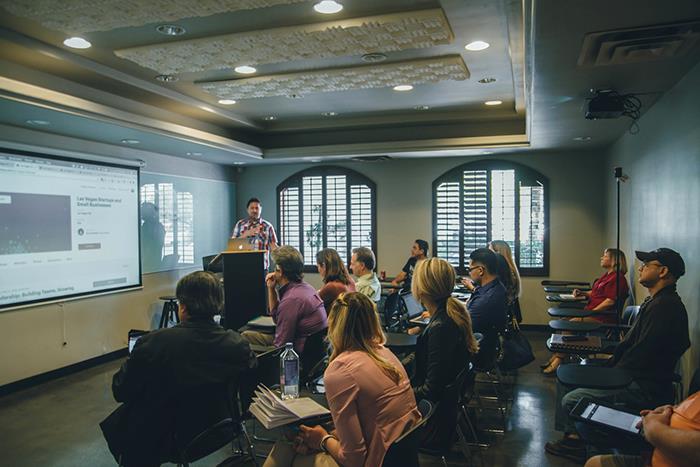 Education is the only way out of the horrible situation. This was made very clear to me right from a young age. I remember everyone in my family checking in on my grades and plans for the future. Almost on a monthly basis! Helped my extensively in the long run.
Education is the only way out of the horrible situation. This was made very clear to me right from a young age. I remember everyone in my family checking in on my grades and plans for the future. Almost on a monthly basis! Helped my extensively in the long run.
Only if you lived near a relatively good school. If it were a school that had completely given up, great grades doesn't do much if you aren't actually learning the topic. Education equality should be a huge focus for this country.
 Museum, amusement park, skiing,and skating? That’s for rich people.
Museum, amusement park, skiing,and skating? That’s for rich people.
Reading through the thread and all of the responses can hit you like a truck. Some of us remember being in those exact same situations. While others (who had the luck of living a comfortable middle or even upper-class life) realized just how emotionally tough you have to be when you’re poor. There’s no room for whining or weakness when you’ve no money, have piling debts, and aren’t sure where your next meal will be coming from or if you’ll end being evicted.
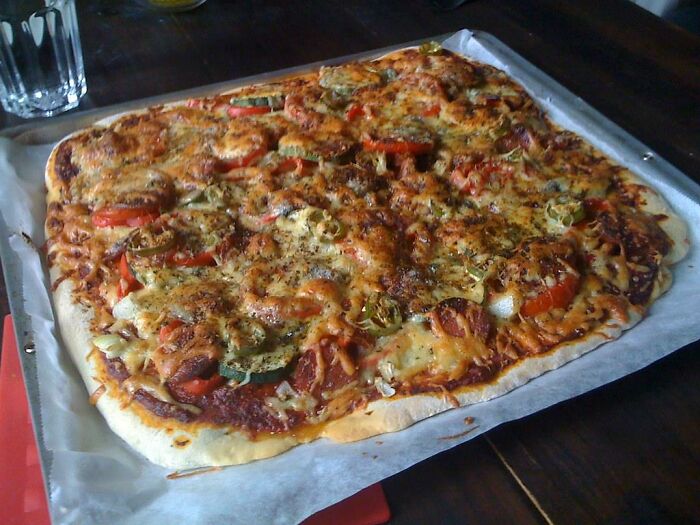 Homemade birthday cakes, homemade pizza, we NEVER went out to eat. Fast food/restaurants were a waste of money. Soda was a treat, as was sugared cereal. You got sox and undies as stocking stuffers at Christmas. You wore your clothes 2-3 times before washing them unless they were obviously dirty or smelly. You washed and dried zipper bags to reuse. We never used paper towels to clean.
Homemade birthday cakes, homemade pizza, we NEVER went out to eat. Fast food/restaurants were a waste of money. Soda was a treat, as was sugared cereal. You got sox and undies as stocking stuffers at Christmas. You wore your clothes 2-3 times before washing them unless they were obviously dirty or smelly. You washed and dried zipper bags to reuse. We never used paper towels to clean.
Unless its one of those tremendously delicious things that I could never bring myself to make the "restaurant way" at home.
Load More Replies...This doesn't sound like poverty to me. I mean: I'm sure it was, but this is how we should ALL behave to avoid pollution, waste, and to eat healthy. Homemade food is better, sugary sodas are bad for your health. You grew up healthier than you rich friends!
Thumbs up for a thousand times!!! That's the truth! Environmental protection and Health. We must be the change, the end of more and more. THERE IS NO PLANET B.
Load More Replies...I do this also, and I’m middle class. Reusing things should be a general rule.
Why would you wash your clothes after every wear? Don't get that. They will wear out so quickly and it;s expensive to run the washing machine so often.
When I lived in the states I use to get my kids gorgeous custom made birthday cakes for under $20, hello Walmart and Costco. Now I live in NZ and a standard, nothing special off the shelf cake start at $35+. All my kids cakes are homemade now. They all really appreciate them too, which makes it special.
On the other hand, we had some pretty good cooks in our family, so we enjoyed what we ate, even though we were on a tight budget.
i still wash my zipperbags. i remember the neighborkid had to keep his sandwichbag every day and bring it back home. it was normal.
Oh, that does sound familiar. But, I never really felt poor. It was life and it was our life.
I remember most of these things with the exception of clothes washing; at least after we went through puberty. We weren't horribly poor, but until I (youngest child for 9 years), was an older teen, this was our experience. Our mom also made all of our clothes.
I was not allowed soda. I got 1 sugar cereal a month. I still wash and reuse my ziplock bags. Now I use a sharpie to make a wash counter and I recycle after 5 uses.
We were poor but my kids loved homemade pizza night. We did it once a week and from the time they were 3 and 1 they got to help with putting the toppings on. We did do homemade a lot and also taught them how to cook. My daughter made her first loaf of bread at 9.
I still was zipper bags - because throwing them out if they are still useful is both wasteful and impractical. In fact, going towards recyclable alternatives. You can buy assorted Tupperware type containers at the thrift stores cheap...
Same for me and I am living on my pension. It's been the same all my life.
You washed and dried zipper bags to reuse - I do this today. Think of the environment! You wore your clothes 2-3 times before washing them - Again, I still do this today homemade pizza - Half the price and twice as nice !
Thats normal for most of my friends and I. Zipper bags are lunch boxes, though.
Load More Replies...I remember we used to wash and dry those baggies that had the fold over tops. NOT EVEN ZIPLOCKS!
We didn't even have the fold over bags, my mom would put my sandwich in a bread bag (and I had to bring it home to wash and use again. AND...we were not even poor but my parents grew up in the depression and that is just what we did.
Load More Replies...Number one rule of growing up poor. Avoid buying anything nice for yourself and feel absolutely guilty if you do.
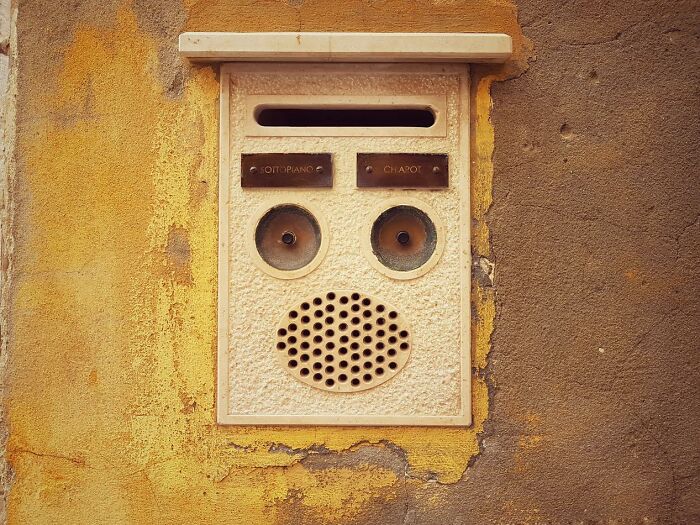 In the UK- do not answer the door. Do not answer the phone. When the man is looking through the window, make sure you can't be seen. Do not tell anyone who knocks on the door where the parents work.
In the UK- do not answer the door. Do not answer the phone. When the man is looking through the window, make sure you can't be seen. Do not tell anyone who knocks on the door where the parents work.
This turned out to be doorstep lenders like Provident- no idea how they are still around these days.
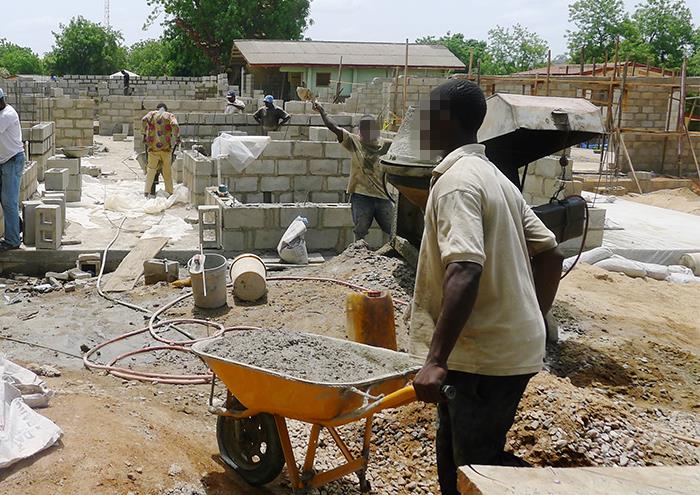 You get a job when you’re 15, and it becomes more important than high school.
You get a job when you’re 15, and it becomes more important than high school.
At least one. And unofficial jobs before that. Cleaning or delivery or something.
Keep your hair brushed, your clothes clean, and be articulate and polite in all circumstances. We were not going to be "trash" just because we were poor.
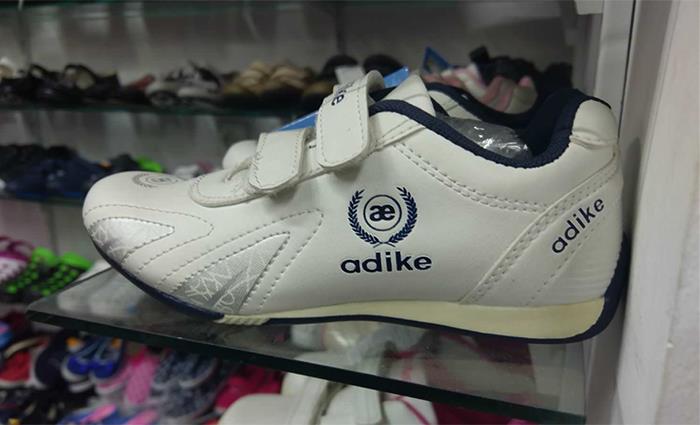 We weren't allowed to do any kind of extra curricular activities. So, no instruments, no joining any kind of sports or girl scouts or anything that required an upfront investment for uniforms or the season. Walmart shoes.
We weren't allowed to do any kind of extra curricular activities. So, no instruments, no joining any kind of sports or girl scouts or anything that required an upfront investment for uniforms or the season. Walmart shoes.
My dad once said I wasn't really in need of glasses, that I just wanted to look like all my four eyed friends? lol (spoiler alert, totally needed them)
Off brand everything.
yep, i grew up poor in post soviet country, so no walmart, but can relate to pretty much everything
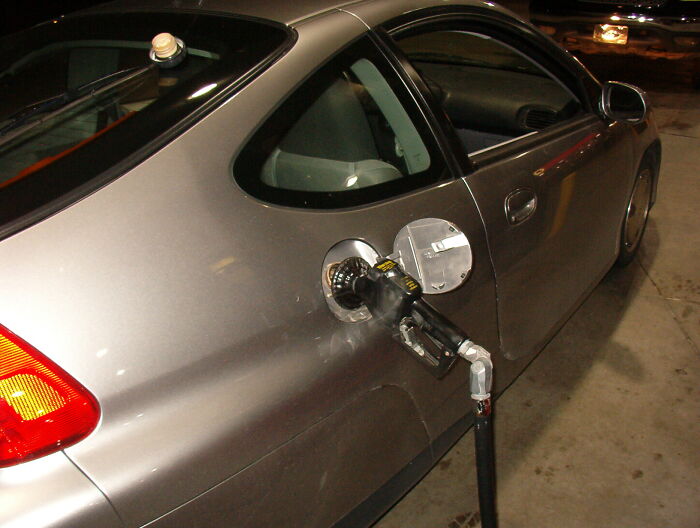 Never fill up the gas tank. You don't want to be in a situation where you have gas in your car but no groceries.
Never fill up the gas tank. You don't want to be in a situation where you have gas in your car but no groceries.
Never go under a quarter tank because you can't trust the gauges on older cars and it won't cost you as much as when it's on E
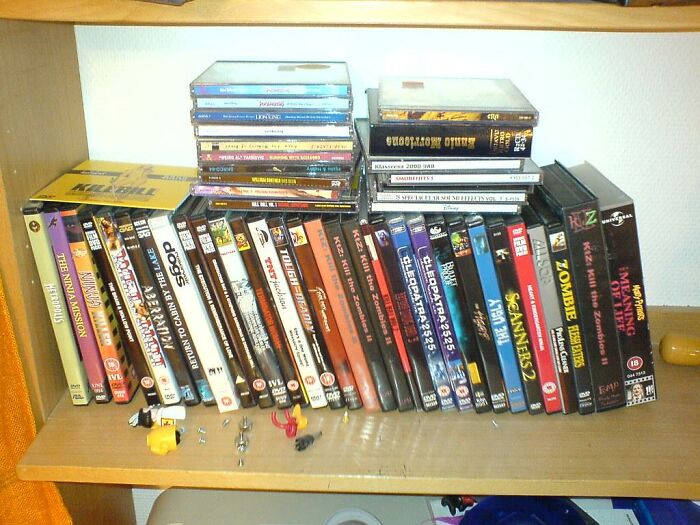 Generous borrowing and “burning” culture. Everything you own is available to be borrowed by other poor people. My family had an extensive movie collection (especially when we could record movies from cable to VHS tapes), and our neighborhood friends were welcome to borrow what they needed. Games, movies, CDs. We swapped and borrowed a lot. Often times, it was only long enough to burn a copy to have for oneself.
Generous borrowing and “burning” culture. Everything you own is available to be borrowed by other poor people. My family had an extensive movie collection (especially when we could record movies from cable to VHS tapes), and our neighborhood friends were welcome to borrow what they needed. Games, movies, CDs. We swapped and borrowed a lot. Often times, it was only long enough to burn a copy to have for oneself.
 Most meals were "experiments" made from the food we got from the food pantry.
Most meals were "experiments" made from the food we got from the food pantry.
Survival meals that are still eaten to this day, but not so much as an experiment anymore
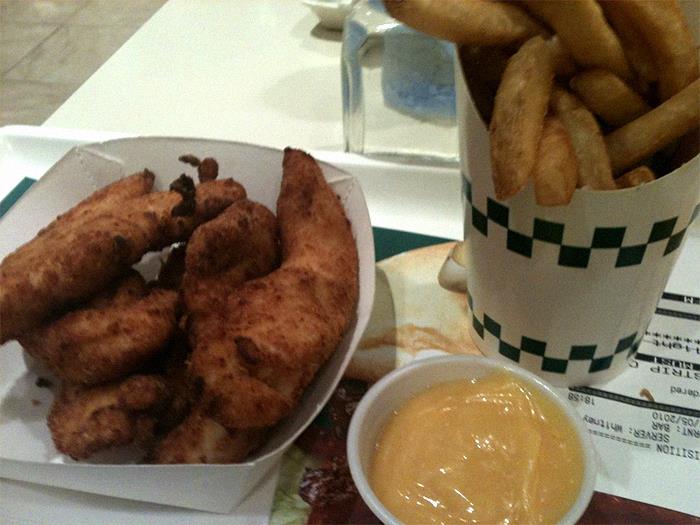 Going to fast food (with any adult), you only order off of the dollar menu.
Going to fast food (with any adult), you only order off of the dollar menu.
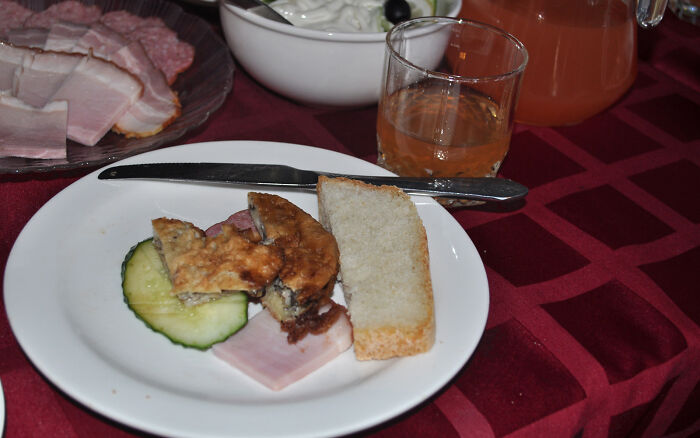 Its funny now seeing my leftovers as a bonus snack and not part of the next days meal.
Its funny now seeing my leftovers as a bonus snack and not part of the next days meal.
Had some weird lunches packed for me. Like cream cheese and olives in a burrito wrap.
As someone from a sh*th*le contry who lived in the U.S for a while, I still can't understand how "the greateast country in the world" can waste money going to war instead of taking care of its people... What a joke!
The US's main waste isn't war, it's handouts we give to the people who don't need handouts. ie: the wealthy.
Load More Replies...I recognise a lot of this and I didn't grow up feeling 'poor' The thing that saddens me most is the lack of access to healthcare. In my country you pay only for cosmetic dentistry and for glasses. If you are poor you don't pay for the glasses and if the dentist can make a case for you it's possible to have cosmetic work done too. Prescriptions are free too, for everyone. This makes the US look like a third world country..
I didn't read all of these but many of these examples come from people who may be financially poor but have significant social capital. They seem to have strong family ties and supportive networks. Which is awesome. They can learn from their roots. I grew up in some nasty conditions and it became the catalyst for so much dysfunction. My emotional education was ruined because of it. It's interesting. A society's social fabric isn't always downstream of its economic strength.
I agree. Even in the smallest of things. Siblings often learn to pull together and look after each other. You are grateful to be fed and often are cold and the petty stuff doesn't come up. I read some of the examples of supposedly normal sibling relationships where kids argue and complain to parents about things like 'he's breathing on me'. Flipping heck - I'd have been grateful, would have been warmer. Houses with no heating are not funny. That's what I remember most from my childhood - being cold.
Load More Replies...I remember the first time I had three meals a day was 12 years old at my friends house,, I remember asking them why they did eat so much and stuffing food in pockets to share with my siblings.... also asking my mom why we never when to another state whilst kids in my class had already been to other countries...I’m sure many had it worse than me but I didn’t realize how poor I was until I got older.
This was my life. And i still live in this mindset. B/c, in the US, I need those pennies for basic healthcare. Make do, or do without. Never carry debt. If you can't pay cash, you don't buy whatever it is. Education first. Hard work. Necessity mothers invention. Everything. And I never felt poor till rich people scoffed at me. So I scoffed back. :-)
Donate your items if you don’t need them anymore. You might make someone’s day a whole lot better. ❤️
My father was a blue collar worker and my mother a home-maker who did part time jobs when we were older. We never had to do without heating, or food, clothing and medical care. By national standards we lived below the official poverty line but we never felt poor. My brothers and I all had part time jobs by the time we were fifteen, working summers to afford some extras during the school year and to go to college and university. I was well looked-after and content. I make better money than my parents ever did but I still live frugally compared to many others (and in much less debt).
I put myself through college. I never wanted fancy cars or boats or anything like that… I just wanted to be able to go up and down the grocery aisle and buy anything I wanted. Over the years I developed a taste for the cheap stuff. I'm still very very very very frugal. And some of my learned habits (not food related) don't have anything to do with money or lack there of. I just don't waste things. I've always volunteered. I can't think of a single thing (non-food item) I own that I did not buy on sale. Doesn't matter how much money you have, if you grow up for in your head you're always for. You're always looking for value.
I didn't see this one, so I hope someone sees it here. Rule: you get a job and you bring your paycheck to your mom. She gives you allowance (like $5-$10)and uses the rest to help put you through school, pay for bills, or get you new clothes. I this this until I know longer lived at home and it felt strange to have all that money.
Absolutely. I have friends who saved up for a deposit on their first home while living with their parents, I was always jealous of that.
Load More Replies...mom raised 3 kids in 60s w/o food stamps/assistance on secretary salary. not easy. father didn't pay support so we knew things were tight. but, there was the time that father brought over a case of chicken noodle soup & case of tuna to 'help out'. mom was creative w/soup & tuna was standard for home lunch. but, eventually, i started getting teased re tuna. had a field trip & told mom not to make lunch as i didn't want to stink up bus w/tuna. next day, lunch was ready anyway. turns out it was chicken salad...or so i thought. got home & thanked mom. then she told me that she had drained, strained, rinsed tuna, added chicken boullion, celery, & mayo for 'chicken salad'. mom was awesome.
I never knew I was poor as a child. Sure I lived with my dad at his parents house. And sure I never got any new clothes straigh from the store. But I had food, my own bed, security and love. I got a toy every christmas and birthday, and we had crepes with sugar and jam every wednesday. Every summer my dad would take me to the Linnanmäki fairgrounds at Helsinki for a day. I had a happy childhood. Even if we were poor.
Most of these I have learned growing up, mostly after my dad walked out and left my mom with 4 kids and nothing else. I remember feeling ashamed, even though my friends never treated me any different if thei families had money, but I was still embarrassed. Today I teach my kids what I learned and make sure they know that it's either college or military after school. Being ridiculed like #19 just pisses me off. Family is supposed to encourage, not berated for wanting to be successful.
I'm from Australia and I remember my excitement every Christmas because my Uncle would bring a bottle of soda and things such as ham never existed in my household, I will never forget one Birthday I got a bag of Minties (candy ), some of the best feeds I had were at Church. I'm still a happy, healthy and educated adult with very well balanced children.
For all those living in London and needs a suit and shoes for a job interview, then check this out - https://www.suitedbootedcentre.org.uk/
Every example I just read is a product of capitalism, with the possible exception of those from foreign countries. The richest country in the world & we have over 500,000 homeless people, including innocent children because we value wealth over people. The poor in this country are treated like lepers & to be avoided whenever possible because they're an embarrassment to the country & a drain on the economy because they use government safety nets to survive, & those who do, are the lucky ones. With this condition, it's truly amazing that we call our country the best in the world & yet chastise other countries for human rights abuses. It says much to the world about who we are as a society.
Many of these can be useful even if you are rich. Especially to reuse everything, don't waste, or give things to others.
M husband and I were driving through my old neighborhood and he asked “why are all these people walking?” I asked “have you never been in a poor neighborhood? Not everyone has a car.”
Amazes me how people keep having kids when their in poverty!! So selfish to bring a life into poverty and most are slaves for the parents. Unbelievable
Reading all this I just realized that my family was poor for years as well. I always believed the only time I was poor was a few years when I was a student and sometimes could not find work. I used to go and steal toilet paper rolls in public buildings. Survived on brown rice with lentils and onions, and home made lemonade for the vitamin C. I have tried selling just about everything that was in the house. And I did not have access to a washing machine. Have you ever tried handwashing a load of jeans and towels? And wringing them dry after? It HURTS and gives you blisters. On the upside, I was so skinny I had a supermodel figure.
Some people with money think and act as presented in this thread. Others laugh and call them cheap, but odds are they've rescued themselves and remember or learneed well from poor elders. Remember the concept of the millionaire next door?
I grew up poor because my mother gave away most of the money my father earned to televangelists and my father stopped caring. Three pairs of pants and one pair of shoes to get through three years of high school, no school trips, no prom, and no extras, ever.
we didnt have a lot of money but were not dirt poor. But always: if you wanna have something, save money for it or work for it, NEVER get a loan (like neverrrr everrrrrr) If you cant save or work for it, do not get it on payments.
What if your car breaks and you need it to get to work? Your options would be get a loan or lose your job. What if your oven breaks and you can't cook a meal for your kids? Lots of poor people get into debt because they cannot save and when an emergency happens they have no choice but to borrow money (and because they are poor that borrowing costs people much more). Which traps them in a cycle of poverty.
Load More Replies...I'm glad I don't have kids yet. I'm constantly trying to reevaluate my parenting skills, so I don't screw them up unintentionally.
We weren't poor but we didn't have money for extras. There were five of us in a 900sf house , one bathroom, no basement, no garage, no family room. Today 900sf is so small it's considered a tiny house for just two people. We grew up not know most people had more. But I always knew many people had less. We've downsized to a 550sf home & it's very comfortable, easy to clean, & more than enough for the two of us. I'm thankful everyday for all I learned from my depression era grandparents.
I don't know what country you live in but if your standard of poor is one bathroom, no garage and no basement you should come visit the UK! The average terraced house is 688 sq. ft. and I literally don't know anybody with two bathrooms or a basement (that's even though I'm middle class now, as are many of my friends).
Load More Replies...As someone from a sh*th*le contry who lived in the U.S for a while, I still can't understand how "the greateast country in the world" can waste money going to war instead of taking care of its people... What a joke!
The US's main waste isn't war, it's handouts we give to the people who don't need handouts. ie: the wealthy.
Load More Replies...I recognise a lot of this and I didn't grow up feeling 'poor' The thing that saddens me most is the lack of access to healthcare. In my country you pay only for cosmetic dentistry and for glasses. If you are poor you don't pay for the glasses and if the dentist can make a case for you it's possible to have cosmetic work done too. Prescriptions are free too, for everyone. This makes the US look like a third world country..
I didn't read all of these but many of these examples come from people who may be financially poor but have significant social capital. They seem to have strong family ties and supportive networks. Which is awesome. They can learn from their roots. I grew up in some nasty conditions and it became the catalyst for so much dysfunction. My emotional education was ruined because of it. It's interesting. A society's social fabric isn't always downstream of its economic strength.
I agree. Even in the smallest of things. Siblings often learn to pull together and look after each other. You are grateful to be fed and often are cold and the petty stuff doesn't come up. I read some of the examples of supposedly normal sibling relationships where kids argue and complain to parents about things like 'he's breathing on me'. Flipping heck - I'd have been grateful, would have been warmer. Houses with no heating are not funny. That's what I remember most from my childhood - being cold.
Load More Replies...I remember the first time I had three meals a day was 12 years old at my friends house,, I remember asking them why they did eat so much and stuffing food in pockets to share with my siblings.... also asking my mom why we never when to another state whilst kids in my class had already been to other countries...I’m sure many had it worse than me but I didn’t realize how poor I was until I got older.
This was my life. And i still live in this mindset. B/c, in the US, I need those pennies for basic healthcare. Make do, or do without. Never carry debt. If you can't pay cash, you don't buy whatever it is. Education first. Hard work. Necessity mothers invention. Everything. And I never felt poor till rich people scoffed at me. So I scoffed back. :-)
Donate your items if you don’t need them anymore. You might make someone’s day a whole lot better. ❤️
My father was a blue collar worker and my mother a home-maker who did part time jobs when we were older. We never had to do without heating, or food, clothing and medical care. By national standards we lived below the official poverty line but we never felt poor. My brothers and I all had part time jobs by the time we were fifteen, working summers to afford some extras during the school year and to go to college and university. I was well looked-after and content. I make better money than my parents ever did but I still live frugally compared to many others (and in much less debt).
I put myself through college. I never wanted fancy cars or boats or anything like that… I just wanted to be able to go up and down the grocery aisle and buy anything I wanted. Over the years I developed a taste for the cheap stuff. I'm still very very very very frugal. And some of my learned habits (not food related) don't have anything to do with money or lack there of. I just don't waste things. I've always volunteered. I can't think of a single thing (non-food item) I own that I did not buy on sale. Doesn't matter how much money you have, if you grow up for in your head you're always for. You're always looking for value.
I didn't see this one, so I hope someone sees it here. Rule: you get a job and you bring your paycheck to your mom. She gives you allowance (like $5-$10)and uses the rest to help put you through school, pay for bills, or get you new clothes. I this this until I know longer lived at home and it felt strange to have all that money.
Absolutely. I have friends who saved up for a deposit on their first home while living with their parents, I was always jealous of that.
Load More Replies...mom raised 3 kids in 60s w/o food stamps/assistance on secretary salary. not easy. father didn't pay support so we knew things were tight. but, there was the time that father brought over a case of chicken noodle soup & case of tuna to 'help out'. mom was creative w/soup & tuna was standard for home lunch. but, eventually, i started getting teased re tuna. had a field trip & told mom not to make lunch as i didn't want to stink up bus w/tuna. next day, lunch was ready anyway. turns out it was chicken salad...or so i thought. got home & thanked mom. then she told me that she had drained, strained, rinsed tuna, added chicken boullion, celery, & mayo for 'chicken salad'. mom was awesome.
I never knew I was poor as a child. Sure I lived with my dad at his parents house. And sure I never got any new clothes straigh from the store. But I had food, my own bed, security and love. I got a toy every christmas and birthday, and we had crepes with sugar and jam every wednesday. Every summer my dad would take me to the Linnanmäki fairgrounds at Helsinki for a day. I had a happy childhood. Even if we were poor.
Most of these I have learned growing up, mostly after my dad walked out and left my mom with 4 kids and nothing else. I remember feeling ashamed, even though my friends never treated me any different if thei families had money, but I was still embarrassed. Today I teach my kids what I learned and make sure they know that it's either college or military after school. Being ridiculed like #19 just pisses me off. Family is supposed to encourage, not berated for wanting to be successful.
I'm from Australia and I remember my excitement every Christmas because my Uncle would bring a bottle of soda and things such as ham never existed in my household, I will never forget one Birthday I got a bag of Minties (candy ), some of the best feeds I had were at Church. I'm still a happy, healthy and educated adult with very well balanced children.
For all those living in London and needs a suit and shoes for a job interview, then check this out - https://www.suitedbootedcentre.org.uk/
Every example I just read is a product of capitalism, with the possible exception of those from foreign countries. The richest country in the world & we have over 500,000 homeless people, including innocent children because we value wealth over people. The poor in this country are treated like lepers & to be avoided whenever possible because they're an embarrassment to the country & a drain on the economy because they use government safety nets to survive, & those who do, are the lucky ones. With this condition, it's truly amazing that we call our country the best in the world & yet chastise other countries for human rights abuses. It says much to the world about who we are as a society.
Many of these can be useful even if you are rich. Especially to reuse everything, don't waste, or give things to others.
M husband and I were driving through my old neighborhood and he asked “why are all these people walking?” I asked “have you never been in a poor neighborhood? Not everyone has a car.”
Amazes me how people keep having kids when their in poverty!! So selfish to bring a life into poverty and most are slaves for the parents. Unbelievable
Reading all this I just realized that my family was poor for years as well. I always believed the only time I was poor was a few years when I was a student and sometimes could not find work. I used to go and steal toilet paper rolls in public buildings. Survived on brown rice with lentils and onions, and home made lemonade for the vitamin C. I have tried selling just about everything that was in the house. And I did not have access to a washing machine. Have you ever tried handwashing a load of jeans and towels? And wringing them dry after? It HURTS and gives you blisters. On the upside, I was so skinny I had a supermodel figure.
Some people with money think and act as presented in this thread. Others laugh and call them cheap, but odds are they've rescued themselves and remember or learneed well from poor elders. Remember the concept of the millionaire next door?
I grew up poor because my mother gave away most of the money my father earned to televangelists and my father stopped caring. Three pairs of pants and one pair of shoes to get through three years of high school, no school trips, no prom, and no extras, ever.
we didnt have a lot of money but were not dirt poor. But always: if you wanna have something, save money for it or work for it, NEVER get a loan (like neverrrr everrrrrr) If you cant save or work for it, do not get it on payments.
What if your car breaks and you need it to get to work? Your options would be get a loan or lose your job. What if your oven breaks and you can't cook a meal for your kids? Lots of poor people get into debt because they cannot save and when an emergency happens they have no choice but to borrow money (and because they are poor that borrowing costs people much more). Which traps them in a cycle of poverty.
Load More Replies...I'm glad I don't have kids yet. I'm constantly trying to reevaluate my parenting skills, so I don't screw them up unintentionally.
We weren't poor but we didn't have money for extras. There were five of us in a 900sf house , one bathroom, no basement, no garage, no family room. Today 900sf is so small it's considered a tiny house for just two people. We grew up not know most people had more. But I always knew many people had less. We've downsized to a 550sf home & it's very comfortable, easy to clean, & more than enough for the two of us. I'm thankful everyday for all I learned from my depression era grandparents.
I don't know what country you live in but if your standard of poor is one bathroom, no garage and no basement you should come visit the UK! The average terraced house is 688 sq. ft. and I literally don't know anybody with two bathrooms or a basement (that's even though I'm middle class now, as are many of my friends).
Load More Replies...
 Dark Mode
Dark Mode 

 No fees, cancel anytime
No fees, cancel anytime 













